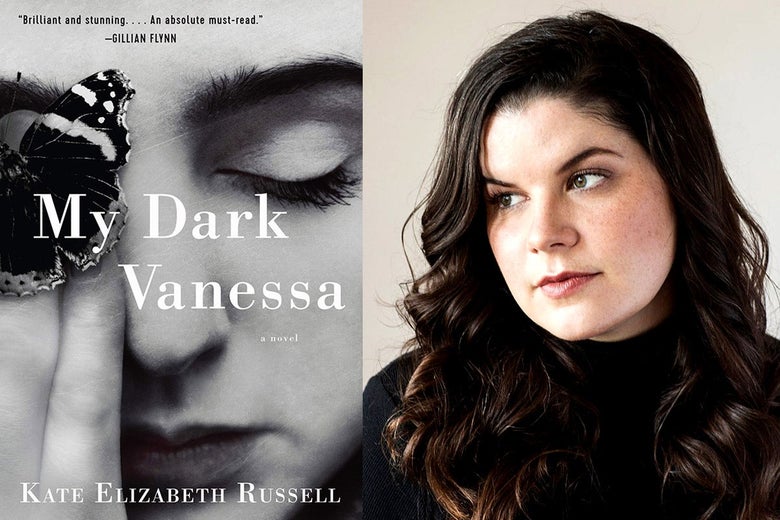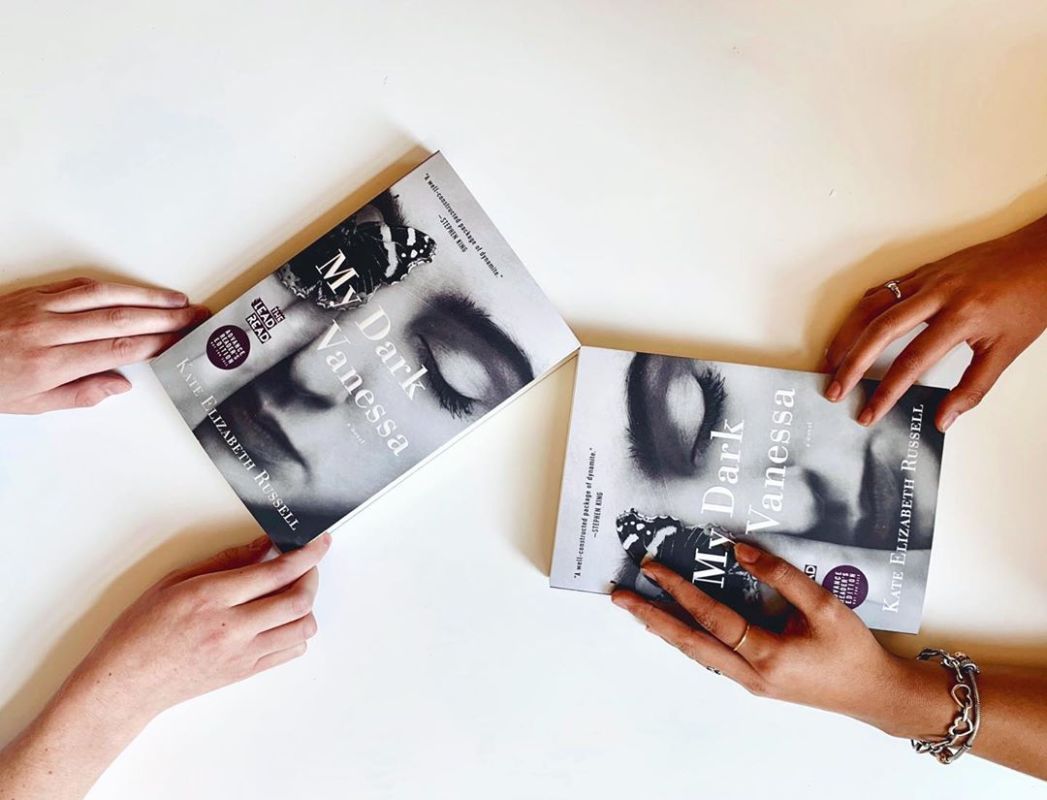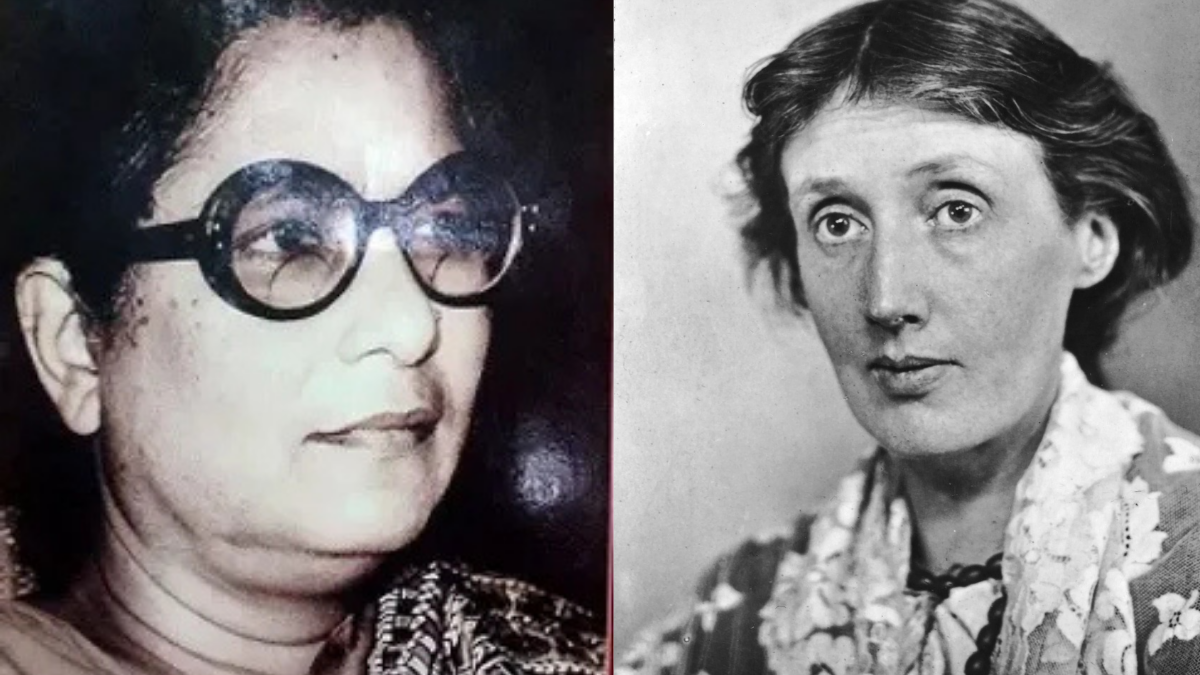Editor’s Note: FII’s #MoodOfTheMonth for January, 2022 is Our Evolving Relationship With Feminism. We invite submissions on the many changing aspects of the feminist discourse, throughout the month. If you’d like to contribute, kindly email your articles to sukanya@feminisminindia.com
Trigger warning: Sexual abuse, adolescent trauma, emotional abuse
Kate Elizabeth Russel’s debut novel My Dark Vanessa is an exercise in empathy. It is a work of fictional biography of a girl named Vanessa. Vanessa is not as dark as the things she endures in her life. She reminded me of my (our) teenage. Didn’t we all go through that “pick me” phase, where we tried extra hard to escape our ordinariness and even a single instance of attention from someone, anyone, made us swoon over them? Vanessa is (or was) a promising young woman but she went through what most of us pass through, and got stuck in a phase that chases her throughout her life.
Vanessa encounters her ephebophile (an adult who is sexually attracted to adolescents) teacher who takes particular interest in her and gives her his favourite novel (no points for guessing) Lolita to read. At Vanessa’s impressionable age, when most of us feel like the central character of movies and take pains to appear different and special, the gift of Lolita from a teacher did not really have the particularly desirable literary effect one will hope against hope for. What goes down from there on in My Dark Vanessa , is a story about gaslighting, manipulation, sexual abuse, trauma and suppression.

Russel has inserted herself in Vanessa’s shoes and her literary genius will make you fill Vanessa’s shoes as well. You can see from her point of view, as a young girl and a grown woman, what transpired in her life and why she thought the way she thought. You will constantly feel the urge to stop her from making all those decisions or console and comfort her, tell her that she is not alone, but when seen from her perspective it all makes sense.
My Dark Vanessa explores the tough questions around consent within the literary structure of fiction. There is no theoretical debate on consent but through Vanessa, it is explained and shown how superfluous the term appears when applied to a child. One cannot have “sex” with a 13-year-old because it is legally called rape. Vanessa takes her own time to realise it. She is in denial because in retrospect, after all, she did consent to it.
In My Dark Vanessa, Vanessa’s self-realisation takes place in the backdrop of the #Metoo movement – a movement that provided women with shared vocabulary and solidarity beyond age and nationality. At first dismissive of the movement, later, it does make Vanessa revisit her own narrative about her life. It makes her realise in retrospect that she was not only wronged by the man who raped her continuously, but also her school, her peers, her friends and other grown-ups who were supposed to take care of her, failed her. My Dark Vanessa makes us rethink about the tenuous nature of social facts and the institutions that are meant to protect a woman, but end up abusing her further
She called it love, because her mind was not mature enough to differentiate manipulation from love, toxicity from longing. She could not fathom the huge power asymmetry, besides the huge age gap, that lay between her and the teacher. At her age, most of us feel unconquerable yet vulnerable, confident yet coy, beautiful yet ugly, smart yet gullible. That’s the age when we are not exactly what we hope we are, but eagerly waiting to arrive there.
Body-wise one is not a child, but emotionally not an adult either. It is definitely tough for her to admit that she had been groomed and raped and not loved, after all. The event that shaped her entire life, if re-defined, will take away her entire self-image and with that, her self-esteem. She is definitely not ready for it until she is. However, she does realise that the event has in fact taken away and shaped her entire self-esteem and self-image. While she aspired to become an author, she finds herself working in a hotel as a dispensable cog in the wheel.
Also read: My Dark Vanessa: A Case Study Of How Sexist Marketing Belittles Women Writers

In My Dark Vanessa, Vanessa’s self-realisation takes place in the backdrop of the #Metoo movement – a movement that provided women with shared vocabulary and solidarity beyond age and nationality. At first dismissive of the movement, later, it does make Vanessa revisit her own narrative about her life.
It makes her realise in retrospect that she was not only wronged by the man who raped her continuously, but also her school, her peers, her friends and other grown-ups who were supposed to take care of her, failed her. My Dark Vanessa makes us rethink about the tenuous nature of social facts and the institutions that are meant to protect a woman, but end up abusing her further. The Bill Clinton-Monica Lewinsky scandal as it is known, had a disproportionate effect on Lewinsky more than it had on Clinton.
In My Dark Vanessa, Vanessa’s psychologist tells her what she went through can lead to severe PTSD (post traumatic stress disorder) to anyone, but Vanessa thought this is how her life is, this is what she has chosen to be. She did not want to deny her agency over her life. As a young girl, she was made to feel responsible for a wrong she did not commit and as a grown woman, she accepts the reality of her past and strives to move past it
The misogynistic social atmosphere of that period turned Lewinsky into the butt of jokes and ridicule. Though Lewinsky called it a consensual act, she did term it as a “gross abuse of power”, which it was. The incident shaped and literally defined Lewinsky’s entire life. The cultural landscape that allows such things to happen to young girls has been explained brilliantly by several authors, in recent times, such as Emily Rajatkwoski in her My Body, Vanessa Springora in Le Consentement and Camille Kouchner in La Familia Grande. It is only now that we get to know about the other side of story and empathise with it, thanks to years of feminist outrage that has generated a conducive atmosphere and discourse.
In My Dark Vanessa, Vanessa’s abuser, too, escaped the consequences of his actions. He rationalised it to her, told her that both him and Vanessa are on the same boat and that nobody will believe her. Unfortunately, he turns out right. He knew the society too well and trusted its guts to disbelieve a young girl and ostracise her for telling the truth. Little did she know that the society tends to look at a young girl’s body as a potent threat lest she chooses to weaponise it.
Our vulnerability is seen as invitation, our clumsiness as seduction, our curiosity as desperation. Her abuser exploited this societal paranoia against a young girl to his advantage like most abusers do. He treated her like an empty shell, a tabula rasa on which he could project his feelings and desires.

Abusers know that the society will choose to police the young girl, her clothing and her choices rather than holding them accountable. In most of such cases of adolescent abuse, the survivor knows that there is something wrong but they just can’t point out what. They do not have the vocabulary to articulate their feelings and most often, they are hegemonised and overpowered by their better articulated abusers. It all happens in a hypersexualised environment that has led to the “disappearance of childhood”, as poignantly argued by Neil Postman in his eponymous work.
In My Dark Vanessa, Vanessa’s psychologist tells her what she went through can lead to severe PTSD (post traumatic stress disorder) to anyone, but Vanessa thought this is how her life is, this is what she has chosen to be. She did not want to deny her agency over her life. As a young girl, she was made to feel responsible for a wrong she did not commit and as a grown woman, she accepts the reality of her past and strives to move past it.
My dark Vanessa is a story of the resilience and self-acceptance of a woman, and it is also a reminder of how important it is to trust young girls and women. It makes us to ponder who Lolita was and if we really know her side of the story. Maybe then the world will realise that Dolores Haze was not Lolita, just like Vanessa was not Dark.
Also read: Film Review ‘The Lost Daughter’ — A Succinct Commentary On Imperfect Motherhood
Rishija is a PhD scholar at Jawaharlal Nehru University and can be contacted at rishijasingh24@gmail.com
Featured Image Source: InsideHook




